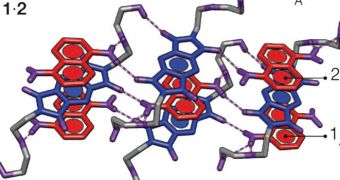An advanced material developed by an international team of researchers holds great promise for use in future generations of Random Access Memory (RAM), as it may lead to the creation of computer memories that consume only a small fraction of the electricity being used by existing devices.
Each year, in the US alone, more than $6 billion are paid by consumers on the electricity their computers' RAM memories use up during standard operations. Thanks to the new material, that figure may decrease sharply, Science Now reports.
Writing in the latest issue of the top journal Nature, American and South Korean researchers say that the crystalline organic compound they developed surpasses all previous limitations affecting the alternatives to RAM, including high cost, bulkiness and huge processor power demands.
Unlike conventional materials, the new one is ferroelectric, meaning it has opposite charges on its side. The orientation of these charges can be switched by a current, but they do not need an ongoing charge to hold on to their data, and therein lies the innovation.

 14 DAY TRIAL //
14 DAY TRIAL //